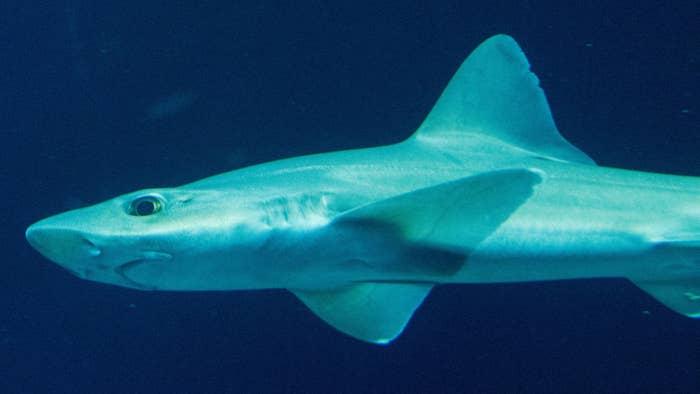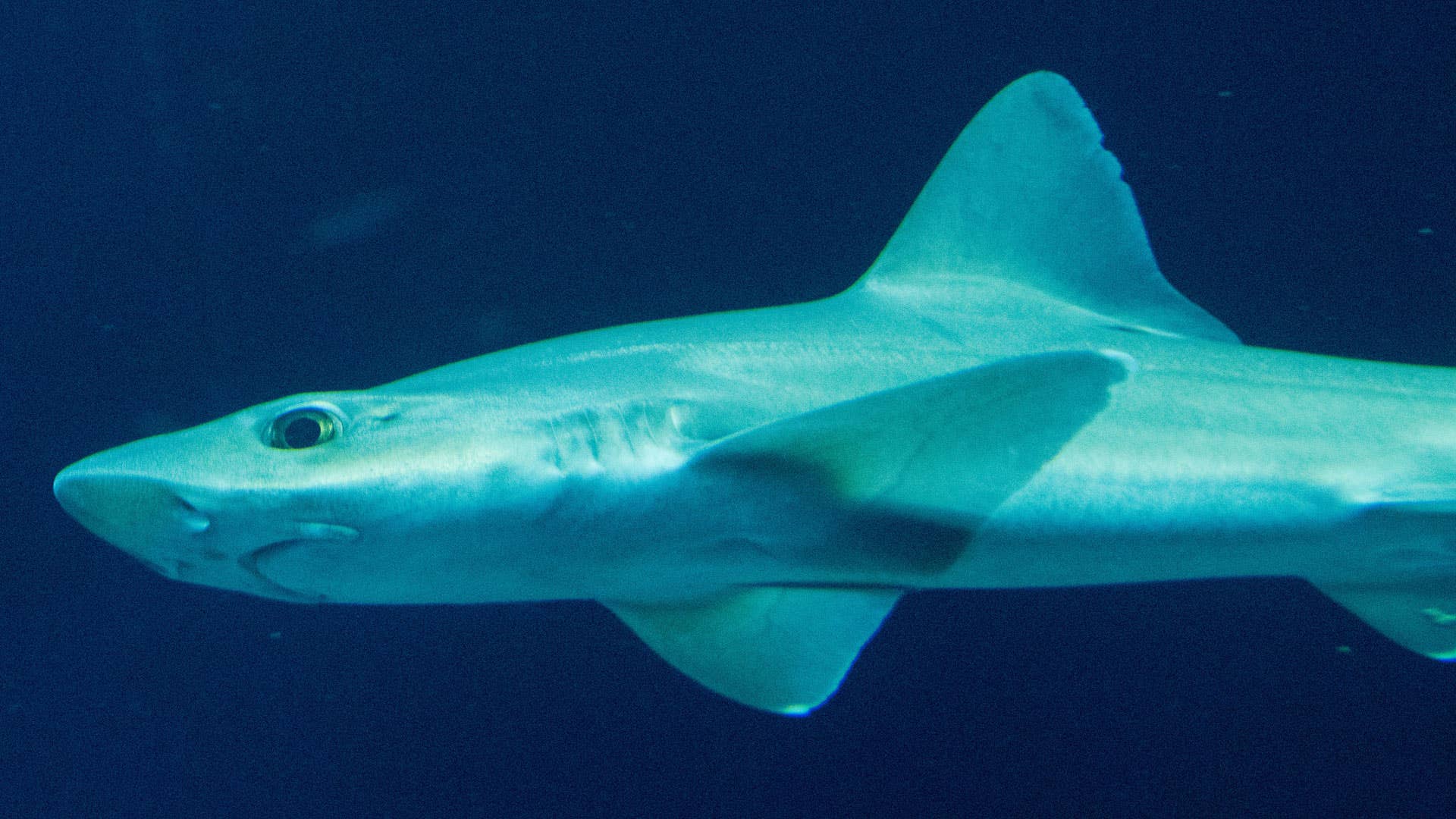
For the first time ever (or, at least, the first time it's been verified) an albino all-white shark was caught by a deep-sea fisherman. The capture happened off the coast of Britain, by the Isle of Wight. And the shark was eventually tossed back into the ocean by its merciful captor after first posing for a photo. So...could've been a lot worse.
The three-foot-long tope shark was snagged by Jason Gillespie of England while he (meaning Gillespie, not the shark) was out with his friends last week. The fish apparently lacks pigmentation due to leucism.
Gillespie added that he'd usually put a tope shark right back in the water, on account of them being a protected species, but that this time it was necessary to snap some images first because this catch was such a rare one. He says that it was released quickly, and that the fish is fine.
"I've been fishing for 30 years and I've never seen one like that," Gillespie said. "It's the fish of a lifetime, one in a million."
As we said in the lede, this is the first time that a fisherman has acquired proof of capturing an albino shark. However, Gillespie added that he had previously heard stories of a fellow angler who snagged one in Wales. Note that that fish was allegedly smaller.
"I [had] heard of one person from Wales who caught one years ago but it was much smaller, about 6 lb," Gillespie said. "I think generally if they lose their color, they struggle to survive because they don't have the same camouflage and they can't hunt as effectively and they get picked up by predators."
MarineBio.org adds that tope sharks were discovered in 1758. They're "harmless to humans," though the reverse isn't true as they're hunted/captured for several reasons (leading to the endangered designation alluded to above). Also they can be found on both sides of the Atlantic, in southern Baja California, Mexico's Gulf of California, and more.

